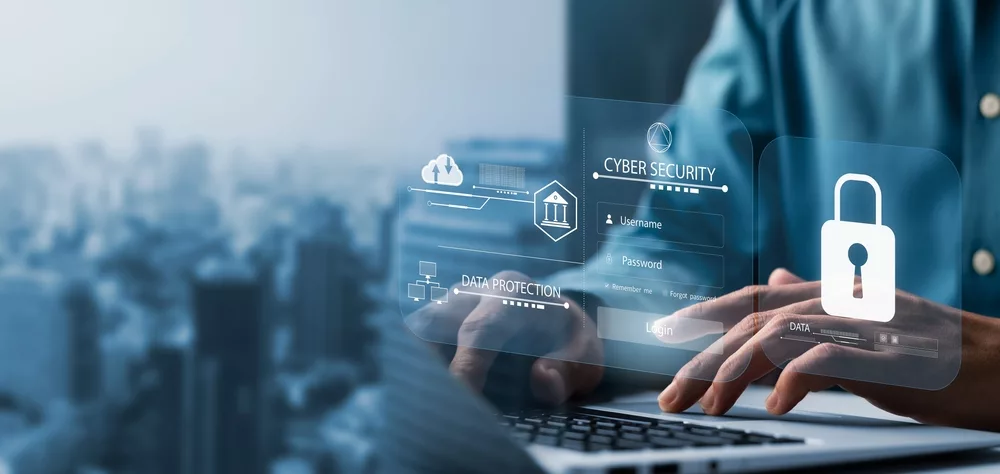As implementation of technology continues to drive innovation across the industry, cybersecurity remains at the forefront of challenges confronting businesses, governments, and individuals. New vulnerabilities are continuously discovered, and new cyberattacks are launched, impacting millions of people and reshaping our understanding of data protection and privacy.
The articles below discuss the latest cybersecurity news and hacks, offering insights into how breaches occur, the implications of an attack, and measures adopted to strengthen the defenses against cyber threats.
Navigating the dual edges of AI for cybersecurity – TechRadar
“Conventional cybersecurity solutions, often limited in scope, fail to provide a holistic strategy. In contrast, AI tools offer a comprehensive, proactive, and an adaptive approach to cybersecurity, distinguishing between benign user errors and genuine threats. It enhances threat management through automation, from detection to incident response, and employs persistent threat hunting to stay ahead of advanced threats. AI systems continuously learn and adapt, analyzing network baselines and integrating threat intelligence to detect anomalies and evolving threats, ensuring superior protection.
However, the rise of AI also introduces potential security risks, such as rogue AI posing targeted threats without sufficient safeguards. Instances like Bing’s controversial responses last year and ChatGPT’s misuse for hacker teams highlight the dual-edge nature of AI. Despite new safeguards in AI systems to prevent misuse, their complexity makes monitoring and control challenging, raising concerns about AI’s potential to become an unmanageable cybersecurity threat. This complexity underscores the ongoing challenge of ensuring AI’s safe and ethical use, mirroring sci-fi narratives closer to our reality.”
AT&T says leaked data set impacts about 73 million current, former account holders – Reuters
“Telecom company AT&T said on Saturday that it is investigating a data set released on the “dark web” about two weeks ago, and said that its preliminary analysis shows it has impacted approximately 7.6 million current account holders and 65.4 million former account holders
The company said the data set appears to be from 2019 or earlier. AT&T said it does not have evidence of unauthorized access to its systems resulting from the incident. AT&T is in contact with all those impacted and has reset passcodes for 7.6 million current customers. It also said it will offer credit monitoring wherever applicable.”
DOD Releases Strategy to Bolster Cybersecurity Across Industrial Base – U.S. Department of Defense
“The Defense Industrial Base Cybersecurity Strategy plots a course for increased focus and collaboration between the Defense Department and the U.S. defense industrial base on cybersecurity initiatives amid what officials say are persistent cyberthreats.
The strategy lays out DOD’s vision over the next three years for a secure, resilient and technologically superior U.S. defense industrial base to ensure the United States’ warfighting edge.It outlines four goals aligned with that vision: Strengthening DOD’s governance structure for U.S. defense industrial base cybersecurity, Enhancing the cybersecurity posture of the U.S. defense industrial base, Preserving the resiliency of critical defense industrial base capabilities in a cyber-contested environment, and Improving cybersecurity collaboration between DOD and the U.S. defense industrial base.”
Information Security Vs. Cybersecurity: What’s The Difference? – Forbes
“Confusion between information security and cybersecurity can occur since much of the information we want to store, protect and transmit exists in cyberspace. While cybersecurity is a part of information security, certain aspects of information security are not included within the realm of cybersecurity.
Information security is an overarching term for creating and maintaining systems and policies to protect any information—digital, physical or intellectual, not just data in cyberspace.
An information security expert may develop the means of data access by authorized individuals or establish security measures to keep information safe. Cybersecurity, on the other hand, focuses on protecting information from cyberattacks and threats such as ransomware and spyware.”
HHS opens probe into UnitedHealth’s cybersecurity as hack fallout continues – The Washington Post
“The Biden administration is opening an investigation into UnitedHealth Group following a cyberattack on a subsidiary that has crippled health-care payments and probably exposed millions of patients’ data.
The Department of Health and Human Services on Wednesday said its probe would focus on identifying the extent of the breach and compliance by UnitedHealth and its subsidiary, Change Healthcare, with the Health Insurance Portability and Accountability Act — widely known as HIPAA — which is intended to protect patients’ private data.
“Given the unprecedented magnitude of this cyberattack, and in the best interest of patients and health care providers, OCR is initiating an investigation into this incident,” the HHS Office for Civil Rights said in a statement.
The federal government has investigated and penalized health-care organizations for data breaches. Anthem in 2020 paid a $16 million settlement following a 2015 data breach that exposed the protected health information of 79 million people. Industry leaders have said the Feb. 21 attack on Change Healthcare — the nation’s largest processor of medical claims — represents the most significant incident of its kind in the U.S. health system’s history. Hackers stole data about patients, encrypted company files and demanded money to unlock them.”
Unspoken Battle: The Cybersecurity Imperative For Protecting Executives – Forbes
“In our digital era, the seamless flow of information is a double-edged sword. As businesses shift more of their operations to the cloud, a worrisome pattern has taken shape: cyberattacks meticulously designed to target senior executives. These individuals, who effectively hold the “keys to the kingdom,” are increasingly vulnerable. Recent reports reveal how cybercriminals breached executive Azure accounts, exploiting weaknesses in Multi-Factor Authentication (MFA) mechanisms. This alarming trend underscores the critical need for enhanced cybersecurity measures, including at the highest levels of leadership. This issue demands the attention of board members as well, emphasizing the collective responsibility to safeguard the organization’s digital fortress.
The stakes are particularly high for executives, whose positions amplify the potential fallout from security breaches. This is because executives have access to a variety of sensitive information.”
Nissan Data Breach Affects 100,000 Individuals – SecurityWeek
“The carmaker said it detected an intrusion on December 5, 2023, and informed customers about a disruptive cyber incident the same day. The attack impacted Nissan Motor Corporation and Nissan Financial Services in Australia and New Zealand.
A few weeks later, the Akira ransomware group took credit for the attack, claiming to have stolen 100 Gb of information from the company, including corporate files and personal information.
The hackers have since published files allegedly stolen from Nissan systems, which suggests that the car manufacturer refused to give in to ransom demands.
In an update posted on Wednesday, Nissan Oceania said it has started contacting impacted individuals.
Following an investigation conducted with the aid of government authorities and external cybersecurity experts, the company has determined that the data breach impacts some Nissan customers, dealers, and current and former employees.”
Top US cybersecurity agency hacked and forced to take some systems offline – CNN
“A federal agency in charge of cybersecurity discovered it was hacked last month and was forced to take two key computer systems offline, an agency spokesperson and US officials familiar with the incident told CNN.
One of the US Cybersecurity and Infrastructure Security Agency’s affected systems runs a program that allows federal, state and local officials to share cyber and physical security assessment tools, according to the US officials briefed on the matter. The other holds information on security assessment of chemical facilities, the sources said.
A CISA spokesperson said in a statement that “there is no operational impact at this time” from the incident and that the agency continues to ‘upgrade and modernize our systems.’”
The Audacious MGM Hack That Brought Chaos to Las Vegas – The Wall Street Journal
“Step one was a phone call to MGM Resorts’ tech support. The person on the line said they were an employee, but had forgotten their password and were locked out of their account.
They gave some personal information over the phone. It all checked out.
What tech support didn’t realize was that the caller was a hacker.
A few minutes later, the real MGM employee received a notification that his password had been reset and reported this to the IT department.
By then, it was too late. The hackers were in.
Over the next five days, a brash group of cybercriminals would try to take more than $30 million from MGM. For the hackers, it was the ultimate game, and a shot at defying the oldest rule in Vegas: The house always wins.
MGM fought back, throwing its hotels and casinos into chaos in the process.
The hack, in early September, put corporate America on notice. The gang had broken into an industry that prides itself on vigilance—where security teams watch over every dice roll and slot pull. Now the world knew a group of elusive young hackers was on the prowl and capable of doing grave damage.
The gang behind the MGM hack call themselves Star Fraud, and investigators say they sprung out of a sprawling online community called the Com. Virtually unheard of five years ago, the Com has become one of the top cybersecurity problems facing the U.S.”
CISA issues emergency directive to federal agencies about Connect Secure software – NBC News
“The top U.S. cyber watchdog agency issued an emergency directive Friday, mandating that all federal agencies protect themselves against a dangerous vulnerability in a popular software program. The watchdog said it is conducting investigations into whether China had used the program to spy on the agencies.
The program used by the agencies is called Ivanti Connect Secure, which allows employees to remotely connect to work. A devastating vulnerability in the program, first discovered in December by the cybersecurity company Volexity, can grant hackers significant access to the businesses or government agencies that use it and allows for the creation of additional back doors to return later.
As news of the vulnerability has become widespread, at least 1,700 known organizations around the world have been hacked with it, Volexity has found.
In a press call with reporters late Friday afternoon, Eric Goldstein, the executive assistant director at the U.S. Cybersecurity and Infrastructure Security Agency (CISA), said that hackers have learned about the vulnerability and increasingly have tried to hack companies and government agencies that use Connect Secure.”
Interested in getting media coverage for cybersecurity news?
FischTank PR works extensively within the cybersecurity industry, within B2B, B2C, GovTech, and more, to help clients achieve media coverage and corporate communications objectives that amplify their brands. To learn how we can work together, please email [email protected]
***Cybersecurity news roundup guest post from FischTank PR interns: Aimee Jean, Ella Perini, and Jamie Steinberger




